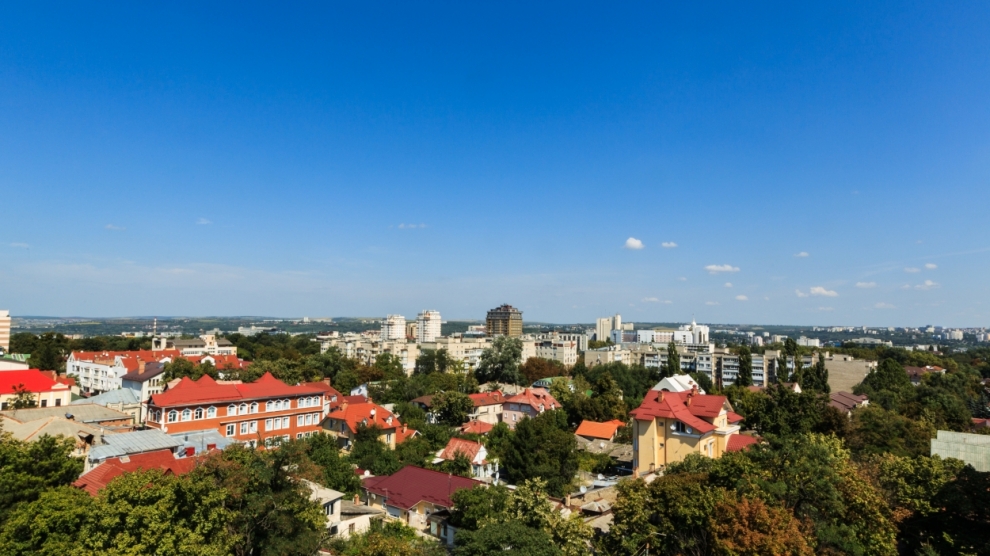Moldova has been working recently to foster investments and to address the accumulated challenges in the banking and the real sectors. The programme with the IMF is on track and it has been serving as an important anchor point for structural reforms, including the comprehensive transformation of Moldova’s banking sector which is showing itself through improved regulations and front-loaded efforts to foster good governance and transparency.
The EBRD’s current portfolio in Moldova is close to €500 million, split between dozens of public and private sector operations. The EBRD is helping Moldova to develop energy interconnections of cross-border significance (a natural gas pipeline and a high-voltage power transmission line with Romania), to improve the municipal and urban infrastructure, to foster energy efficiency, to develop a road infrastructure, to restructure the railways and to support viable and transparent businesses which represent the backbone of Moldova’s economy.
The ongoing reforms to reinforce transparency and good governance in the banking sector will allow the EBRD to do more in, and through, Moldova’s banks and in this way we can further extend our outreach to the small and medium size enterprises. We see the effort on the side of the Moldovan authorities to address the banking sector issues, and this drives our commitment to support Moldova.
Together with the financing, the EBRD delivers policy dialogue in a number of key areas, including energy sector reforms, banking and e-procurement etc. The EBRD has supported the work of the Secretariat of the Prime Minister’s Economic Council, which provides a platform for discussing business climate related matters among the representatives of the government and of the private sector and of international development partners. The agendas are usually long and there is a willingness to engage and to succeed on all sides. Our operational and the policy dialogue-related work streams in Moldova are reinforcing and strengthening each other.
The recent political and macroeconomic stability has enabled the Moldovan authorities to look beyond the short term, and to think about how to address Moldova’s structural constraints, in order to release sustainable private sector-driven growth.
As a small open economy, Moldova cannot fence itself in from external economic factors, although there is a general understanding that far-reaching structural reforms, including the increased integration with the European Union in the context of the DCFTA, could make Moldova more resilient, more stable and more successful. Continued macroeconomic stability and an improved business climate would allow firms – domestic and foreign alike – to spend and invest more. As much as Moldova needs lots of foreign direct investment to spark and retain high growth, the reforms which aim to foster the level playing field would unlock significant domestic investment opportunities.
Such opportunities do exist. In fact, there are many of them. Moldova is very centrally located, its people speak multiple languages and are hard-working and well-educated: The European Union’s huge market for goods and services is right next door, and the DCFTA arrangement facilitates a free movement of goods: Moldovans can travel to the European Union and to the Commonwealth of Independent States visa-free. The Giurgiulesti International Free Port, in Moldova’s south, conveniently links with its regional roads and railway infrastructure and represents an important gateway to the Black Sea as well as a source of investment and of employment. Good air and road links exist with countries in Moldova’s immediate neighbourhood and beyond.
In the recent years, Moldova has emerged as a hub for suppliers of the international car industry. Auto parts makers such as Germany’s Dräxlmaier Group, Austria’s Gebauer & Griller, Italy’s La Triveneta Cavi and Japan’s Sumitomo have discovered Moldova one-by-one: its educated, hard-working people and relatively lower costs. They produce in Moldova (cables, electric harnesses for cars etc.) and export – some in the real-time mode – to assembly lines elsewhere in Europe. The government has been supportive of this, through an access infrastructure and policies that are conducive, including efficient customs clearance and low taxes.
The automotive cluster has provided employment to thousands of Moldovans, and it represents a shining example of how and why Moldova could be a magnet for foreign investors in other sectors and clusters.
Such investors — who are ready to integrate themselves into Moldova, and produce and supply to the local market and export to other locations – promote Moldova’s regional economic vision of its position. The authorities – and the EBRD as Moldova’s largest institutional investor – are keen to support the duplication of similar projects, which integrate Moldova into the international value chains, create employment opportunities and thus help to address the population decline which has been an important challenge for Moldova.
In sum, the EBRD remains committed to Moldova. A number of important international investors have benefitted from Moldova’s location and from the availability of the factors of production. We invite others to explore Moldova as the potential investment and doing business destination.

